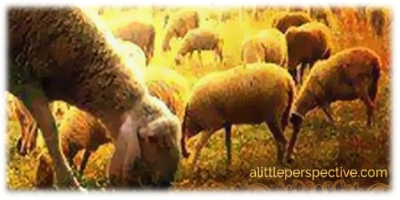The Hebrew word כארו (ka'aru) is found in one verse, Psalm 22:17 (verse 16 in Christian Bibles). Yes, I know, there are many out there who are saying, “No, that is not the word in Psalm 22:17 it is the word כארי (ka’ari).” But hear me out.
Let’s begin by defining these two Hebrew words. The word כארי (ka’ari) is the Hebrew word ארי (ari) meaning “lion,” with the prefix כ (k) meaning “like.” So כארי (ka’ari) means “like a lion.” The word כארו (ka'aru) is the Hebrew verb כאר (K.A.R) meaning “to dig” or possibly “to pierce” (the meaning of this word is determined by examining other Semitic languages that do use this word). When the letter vav (ו) is added to the end of a verb, it identifies the verb as perfect tense (similar to our past tense) and the subject of the verb as third person, masculine, plural. So, this verb would be translated as “they dug” or “they pierced.”
If Psalm 22:17 is translated with the word כארו (ka'aru), then it would read as;
For dogs will surround me, the assembly of evil ones encompasses me; they pierced my hands and feet.
If, on the other hand, we translate this verse with the word כארי (ka’ari), then it would read as;
For dogs will surround me, the assembly of evil ones encompass me, like a lion are my hands and feet.
Bible translators and scholars use a process called Textual Criticism to determine the original wording of a given passage by comparing all of the ancient manuscripts.
The Hebrew word כארי (ka'ariy-like a lion) is the word found in the Masoretic Hebrew text in this verse. However, in the Dead Sea Scrolls, which is 1,000 years older than the Masoretic Hebrew text, the letters yud and vav look almost identical, so it is possible, from the Dead Sea Scrolls to read this word as כארו (ka’aru) or כארי (ka’ariy).
Also, the Septuagint, a 2,000-year-old Greek translation of the Hebrew Bible, for this phrase reads; ωρυξαν χειράς μου και πόδας, which means “they have dug my hands and feet,” which agrees with the Hebrew spelling of כארו (ka’aru - they dug).
So, in summary, the Jewish translation of “like a lion” agrees with the Masoretic text and possibly the Dead Sea Scrolls and the Christian translation of “they dug/pierced” agrees with the Septuagint and possibly the Dead Sea Scrolls. For those who criticize the Christian translation for being a mistranslation of the Masoretic text, this is not the case; it is a matter of a different conclusion based on Textual Criticism.

Like what you’re discovering? Continue the journey from Bible reader to translator.
|






